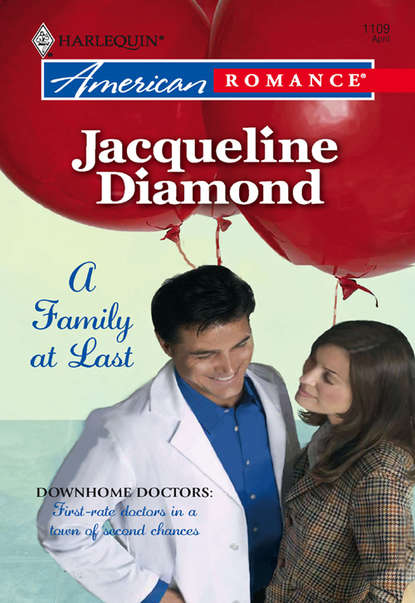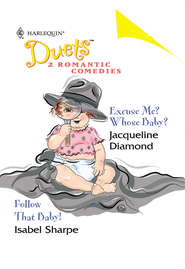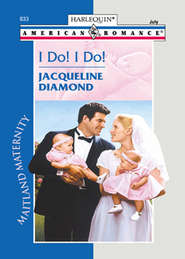По всем вопросам обращайтесь на: info@litportal.ru
(©) 2003-2025.
✖
A Family at Last
Автор
Год написания книги
2018
Настройки чтения
Размер шрифта
Высота строк
Поля
In retrospect, it was lucky he hadn’t gone for his shotgun, but he’d meant business with those tines. Barry had grabbed a shovel and fought back, whacking the man hard enough to send him reeling.
They’d bolted over a fence and ran for dear life. In the haste and confusion, they lost sight of each other. Chris waited in his car, parked out of sight, for ten or fifteen minutes before Barry showed up. Scraped and out of breath, he claimed to have run the wrong way in the darkness.
Heading home, they heard sirens. Later, horrified to learn the farmer had died of his injuries, Chris had gone to the police accompanied by his father, who was a lawyer, and told his story.
The county district attorney had charged Barry in the death. Determined to tell the truth, which he believed would exonerate his friend, Chris had testified that he’d seen only one blow connect and that Anglin had attacked first.
However, according to the coroner, three blows had landed. A couple of witnesses, neither of whom had a criminal record, had testified to seeing Barry sneaking back a short time later. The implication was that he’d decided to finish the job.
One witness was a homeless man, Lou Bates, whom a motorcycle accident had left with only one arm and a pronounced limp. He didn’t seem physically capable of launching such a vicious assault, nor did he have a motive. The other was a farmhand, a man named Hank Lincoln. He was returning to the bunkhouse from church when he claimed to have spotted Barry, wearing a blue shirt and moving in a suspicious manner. Hank had hurried to the main house to alert his boss.
Discovering that Norbert was out, he’d accompanied Mrs. Anglin to the coop, where they’d made the grisly discovery of her husband’s battered body. She’d testified that Hank showed no sign of dirt or disarray when he’d first arrived, and fellow choir members had confirmed his alibi, along with the time of his departure.
The case must have seemed open-and-shut. In addition to Chris’s testimony, the fingerprints found on the shovel’s handle had mostly belonged to Barry, with a few of Anglin’s and a couple of smudged partials from Hank, who’d used the implement as part of his duties.
Barry’s notoriously hot temper and history of getting into fistfights at school had fueled the D.A.’s portrait of him as a dangerous young man. The jury took only a few hours to return a manslaughter conviction.
Chris stared down at the reports. Despite the neat way the story fell together, aspects of it troubled him.
Although he hadn’t been able to find Barry immediately after they fled, at the time Chris had believed the two witnesses must have seen him wandering around, lost, not deliberately returning to the chicken coop. As for the three blows, he’d assumed Barry’s flailing had simply connected more times than he’d realized.
However, the coroner’s account made it clear that two powerful blows had struck the farmer as he lay on the ground, presumably dazed from the first impact. It looked as if someone had intentionally caved in the man’s head.
Barry had never been malicious. The possibility that Anglin might identify them wasn’t nearly enough motivation for him to commit such a brutal act.
Furthermore, the police had recovered several blue fibers that they’d never been able to trace. Since the evidence didn’t match Barry’s shirt or anything else found during their searches, they’d assumed the threads had come from a feedbag label or some other innocuous source. But had they?
Maybe Barry really hadn’t killed Norbert Anglin, even unintentionally. If someone else had landed those blows, it would explain why he was casting about for someone to blame.
His chest squeezing, Chris weighed the situation. Had the police made a mistake in clearing the other two men? Or had Hank seen someone else in a blue shirt hurrying through the night, someone who’d taken advantage of the situation?
Chris had returned to Downhome to lay old ghosts to rest, not to dig up skeletons. His better judgment warned him to leave the matter alone. Ethan had already decided the case didn’t merit reopening.
No one but the Lowells took Barry’s claims of innocence seriously. Until this point, neither had Chris. But if he’d unwittingly helped bring about a miscarriage of justice, he couldn’t let it go.
Chapter Four
In her office on Monday afternoon, Karen was reviewing the nursing home’s financial statement when she became aware of raised voices from the nearby dining room. She was prepared to leave the matter to her staff, when a small crash rocketed her into action.
Hurrying into the large room where a few residents lingered after lunch, she saw a knot of people in one corner. Jane Duke, an aide whose no-nonsense manner generally made short work of minor disputes, was kneeling and picking up the remains of a coffee mug. Eighty-four-year-old Davy Marshak, a retired mechanic with the disposition of a rhinoceros with a toothache, sat in his chair, glaring.
The other members of the group were Davy’s roommate, Junior Ferguson, and food-service director Marquis Lyons, the apparent target of the man’s ill humor.
As Karen entered, Marquis threw up his hands in frustration. “Everyone else says the chicken was tender. And the rice pudding—it’s what you asked for!”
“It had lumps in it!” Davy snapped.
“Rice pudding always has lumps,” Junior said mildly. “Give the man a break, Davy.”
“I don’t like the way he cooks.” His roommate folded his arms. “We need a new chef.”
“You need a new outlook!” Marquis declared. “Yours is so sour, no wonder nothing tastes good.” Few people managed to rile Marquis, but Davy had a gift for pushing people past their limits.
“I want a new chef!” the former mechanic demanded when he saw Karen.
“Absolutely not,” she said. “I’m happy with the one I have and so, at last count, is everyone else.” She had no hesitation on that point. The food specialist took pride in tempting his clients’ appetites.
“He’s a lousy cook!” Davy provoked. “I can’t eat this stuff.”
“I must make it clear that Mr. Lyons has my full and complete support. However, if your appetite is flagging, we can have food delivered for you.” Karen wanted to meet the residents’ needs, although she sensed there might be more at issue here than a problem with the food.
Something was troubling the elderly man. It might, sadly, be a simmering rage at the increasing frailty of his body. She’d seen that before, especially in men accustomed to leading independent lives.
Old age tended to intensify people’s personalities. Some gained in wisdom and became more sweet-natured, but Davy Marshak had grown progressively harder to please during his three years at the home. Thank goodness the easygoing Junior agreed to room with him, because no one else would.
Marquis nodded, mollified. “I’ll get back to work, then. If Mr. Marshak is finished throwing a temper tantrum.” He glanced meaningfully at the broken cup in Jane’s hands.
“I’m tired of sitting here,” Davy announced as soon as Marquis left. “Somebody help me up.”
Depositing the cup in a wastebasket, Jane went to assist. She managed not to make a face at his rudeness, which must have taken incredible self-control.
After he departed, still grumbling, Karen lingered in the dining room with Junior. As usual, he wore plaid pants and combed strands of long hair across his shiny pate. The widower, who’d lived alone in his farmhouse, had come here several years earlier after suffering a mild stroke. If he’d had relatives to stay with him, he could have continued living there.
She welcomed Junior’s company. The sociable fellow lifted the others’ spirits and often helped provide insight. “Any idea what’s bugging Mr. Marshak?”
He considered. “He’s turning eighty-five in two weeks and neither of his kids is planning anything special. Maybe he’s starting to realize his bad temper drove them away.”
Davy’s admitting papers listed him as divorced. His grown son and daughter visited occasionally but didn’t stay long.
“I could ask the counselor to talk to him.” She didn’t hold out much hope. The therapist had had no luck with Davy in the past.
Junior shook his head. “He won’t go for it.”
“We’ll have a celebration here, of course, but in the meantime, he isn’t eating properly.” While she’d long ago accepted, reluctantly, that she couldn’t solve all the residents’ problems, she had a responsibility to keep them as healthy as possible. “Maybe his medications are affecting his sense of taste. I’ll ask the doctor.”
Her companion patted her shoulder. “You’re a good mother hen.”
Karen gave him a hug. “I wish I had a magic wand to make everyone’s difficulties go away, but I can’t even fix my own.” Regretting the mention of personal concerns, she added, “I mean my mother’s health, of course.”
“That reminds me. I promised to play chess with her. She always wins, but I’m working on my strategy.” With a wink, Junior headed for the rec room.
Walking into the hall, Karen wondered why she’d blurted that remark. There was nothing wrong with her life.
Except, perhaps, for the fact that she was thirty-one and hadn’t had a real date in over a year. Meanwhile, her best friend Leah had married and expected a baby next month. Her new friend Jenni had struck a love match with Ethan almost as soon as she’d hit town.
Karen supposed she ought to put more energy into finding someone. It wouldn’t hurt to attend singles events in Mill Valley, and she’d heard of people finding spouses on the Internet.
Of course, she’d also heard of people finding ax murderers on the Internet.











